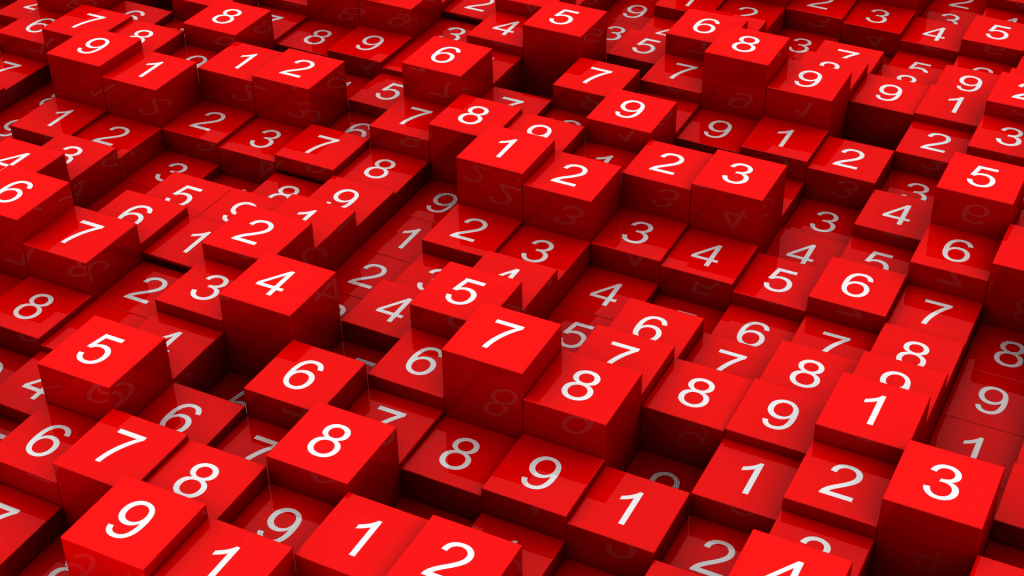What does RNG mean in the gaming culture? RNGs are a vital part of many modern games. They’re used to create random outcomes, which can range from what items you get to how much damage is dealt when you attack an opponent.
Some gamers feel that RNG is unfair, as it can create situations where the outcome of a game is determined by luck rather than skill. On the other hand, others enjoy the unpredictability that RNG adds to games. Whether you enjoy games with RNG or not, it’s good to know more about the RNG definition and everything else about this gaming concept.
Learn in This Article
- What Is RNG in Gaming
- How Does RNG Work
- Purpose of RNG in Gaming
- Types of RNG
- Pseudo RNG
- True PNG
- Can RNG Be Manipulated
- Our Takeaway
What Is RNG in Gaming
There is a lot of gaming jargon out there, and it can be tough to keep up with all of it. One gaming term you may have heard frequently thrown around is RNG. So, what does RNG mean?
RNG is an acronym for random number generators. It is a specific type of software developed to create random outcomes in a game. RNG is used in all sorts of games, from casino games and role-playing games (RPGs) to first-person shooter (FPS) games.
There are various applications of RNG in games. For example, in an RPG, RNG might be used to determine if a particular attack hits its target or not. In an FPS, RNG could determine the spread of bullets when firing a gun.
RNG also has purposes outside the gaming industry, such as generating random numbers for a lottery.

How Does RNG Work
RNG stands for random number generators. This technique creates a sequence of numbers that can’t be reasonably predicted. RNG has a variety of applications, including games, cryptography, and statistical sampling.
In general, RNG works by taking a known value called a seed and combining it with additional data to produce a new value. The new value is then used as the seed for the next iteration. This process is repeated until the desired number of values has been generated. While RNG can be used as a hardware device, it is more commonly a software algorithm.
This approach allows the concept to be easily integrated into existing systems. Moreover, it makes it possible to generate truly random numbers, which is essential for many applications, not just games.
Overall, RNG is a powerful tool that can be used to generate unpredictable and exciting outcomes in games. While some gamers think RNG makes the game unfair, it ultimately adds a layer of unpredictability to games that can be very enjoyable.
Purpose of RNG in Gaming
What does RNG mean in Fortnite and in other games? In general, what is its purpose in gaming? Read on to find out.
The RNG meaning in gaming is creating randomness and unpredictability in games to make it more challenging. Randomness adds an element of chance, making it more difficult to strategize and predict outcomes. Although not everyone agrees, RNG can also make games fairer by ensuring that everyone has an equal chance of winning.
Without RNGs, games would be predictable and therefore less interesting and challenging. For example, in a role-playing game like Final Fantasy, RNGs are used to determine whether or not a player’s attack will hit an enemy and, if so, how much damage is dealt. RNGs are also used to generate loot drops, meaning that every time a player kills an enemy, there is a chance they will receive an item. This element of surprise and anticipation is one of the things that make gaming so addicting.
Types of RNG
There are two main types of RNGs:
- Pseudorandom number generators (PRNGs)
- True random number generators (TRNGs)
Let’s dive deeper into each one.

Pseudorandom Number Generators (PRNGs)
Pseudorandom number generators (PRNGs) are algorithms that generate a sequence of numbers that appear to be random but are actually deterministic. In other words, given the same seed, a PRNG will always generate the same sequence of numbers. While PRNGs are not truly random, they still have a lot of applications because they are easy to implement and can be very fast.
One example of where PRNGs cannot be used is in cryptographic applications because if the algorithm is known, it can be used to predict the next number in the sequence. This would allow an attacker to decrypt messages or hack into systems.
True Random Number Generator (TRNGs)
TRNGs are hardware devices that generate genuinely random numbers. TRNGs are usually based on physical processes, such as the radioactive decay of atoms or thermal noise. These processes are unpredictable, thus making them suitable for generating random numbers.
TRNGs are more expensive and slower than PRNGs, but they are also more secure. Because TRNGs generate truly random numbers, they are truly unpredictable, which makes them ideal for applications that require maximum security, such as cryptography.
Can RNG Be Manipulated
RNGs can be manipulated by malicious actors to give themselves an unfair advantage in games. This is called RNG manipulation.
We’ve previously discussed that RNG can create exciting moments in games, but it can also be frustrating when the odds go against the player. Several factors can affect RNG, such as seed values, algorithm choices, and hardware limitations. As a result, RNG can sometimes be manipulated by savvy players.
For example, by changing the seed value, a player might be able to influence what items appear in a treasure chest, or by choosing a different algorithm, a player could increase their chances of getting a critical hit. However, manipulating RNG is not always possible, and even when it is, the results are not always guaranteed.
RNG manipulation is considered cheating and is generally frowned upon by the gaming community. However, some players argue that RNG manipulation is a legitimate way to improve one’s chances of winning.
What Does RNG Mean: Key Takeaways
To define RNG in gaming, it’s essential to understand how vital it is in the modern video gaming industry. It helps create an element of chance or luck and adds an extra layer of excitement (or frustration) to the gaming experience. In a game of poker, RNG determines whether the next card you draw will be an ace or a deuce.
While some gamers enjoy the unpredictability that comes from RNGs, others find it frustrating when they lose due to factors beyond their control. Ultimately, whether RNG is viewed as a positive or negative addition to a game is a matter of personal preference. However, there’s no denying that it plays a vital role in many contemporary games.
Frequently Asked Questions
Many gamers enjoy RNG games because they are unpredictable, exciting, and challenging, especially for hardcore gamers. No two playthroughs are ever the same, and there’s always the possibility of a lucky break that can turn the tide in a battle.
This can lead to some very nail-biting moments, and it’s one of the things that keeps players coming back for more. In addition, RNG games tend to have a lot of replay value because of their unpredictability which gives players a lot of room to improve from their previous play.
For many gamers, RNG games provide the perfect blend of skill and luck, and that’s why they’re so popular.
While RNG can add extra entertainment value to a game, it can also lead to frustration if luck is not on a player’s side. Bad RNG occurs when the odds are not in a player’s favor, resulting in a string of unfortunate events, which explains Urban Dictionary calling RNG “the evilest villain of gaming.”
Some examples of bad RNG is if a player keeps getting dealt low-value cards in a card game or if an enemy always seems to evade their attacks in an RPG. Some players believe that bad RNG results from cursed items or “tilt,” while others simply attribute it to bad luck. Whatever the cause, bad RNG can be frustrating and may even cause some players to give up on a game entirely.
While there’s no surefire way to avoid bad RNG, understanding how it works can help players cope with the inevitable moments of misfortune.
RNG, or random number generation, is a critical component in many forms of gambling. Without RNG, games like slots, roulette, and craps would be impossible to play. RNG is used to generate the numbers that determine where the ball will land on a roulette wheel, what symbols will appear on a slot machine, etc. In short, RNG creates the element of chance that is essential to gambling.
There are different types of RNG algorithms, but they all share one common goal: to produce a stream of unpredictable numbers.
So, what does RNG mean for gamers and gamblers? There are some who argue that RNG creates an unfair advantage for casinos and other gambling establishments. After all, if the house always has the edge in games of chance, why bother playing? However, it should be noted that RNG is only part of the equation when it comes to gambling; skill and strategy still contribute to winning.
